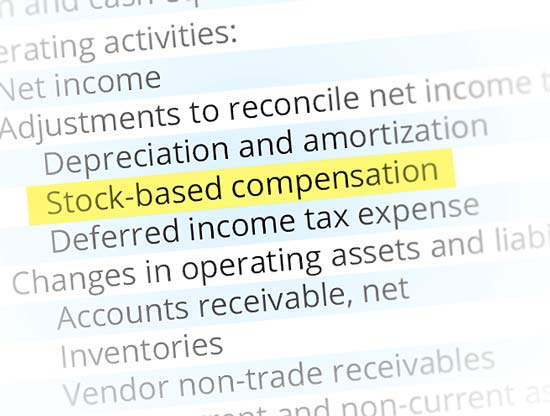

The accounting and tax treatment of stock-based compensation is generally similar to that in other countries globally. When a company grants stock-based compensation to its employees, it records the value of the stock as an expense on its financial statements. This is because the company is effectively giving up some of its ownership in exchange for the services of the employee.

Accounting and tax treatment
The amount of the expense is calculated by determining the value of the stock at the time it is granted to the employee. This value is then multiplied by the number of shares that are granted to the employee. For example, if a company grants an employee 100 shares of stock that are worth $10 per share at the time of the grant, the expense would be $1,000 (100 x $10).
In terms of taxes, the employee will generally be required to pay taxes on the value of the stock when it is granted, even if they do not sell the stock. This is known as “income taxation.” The employee will be required to pay taxes at their ordinary income tax rate on the value of the stock.
For example, if the employee in the above example is in the 25% tax bracket, they would be required to pay $250 in taxes on the value of the stock (25% x $1,000 = $250). If the employee later sells the stock for more than its value at the time of the grant, they may be required to pay additional taxes on the difference between the sale price and the value at the time of the grant. This is known as a “capital gains” tax.
It is worth noting that the specific tax treatment of stock-based compensation may vary depending on the specific circumstances and details of the grant, as well as any applicable tax treaties or other agreements between your local tax regime and the country where the company is based. It is always a good idea to consult with a qualified tax professional who is familiar with the laws and regulations in your local market to ensure that you are properly accounting for and reporting any stock-based compensation.
Impact of vesting of share grants
Vesting refers to the process by which an employee becomes entitled to receive the shares of company stock that have been granted to them as part of their stock-based compensation. In general, vesting occurs over a certain period of time, known as the vesting period, and may be subject to certain conditions, such as the employee remaining with the company for a certain number of years or achieving certain performance goals.
The vesting of share grants does not typically impact the accounting and tax treatment of stock-based compensation. The value of the stock is generally recorded as an expense on the company’s financial statements at the time of the grant, regardless of whether the shares have vested. The employee is also generally required to pay taxes on the value of the stock at the time of the grant, even if the shares have not yet vested.
However, the vesting of share grants may impact the timing of when the expense is recognized and when the employee is required to pay taxes. For example, if the vesting period is three years, the company may choose to recognize the expense on its financial statements over the three-year vesting period, rather than all at once. Similarly, the employee may be required to pay taxes on the value of the stock as it vests, rather than all at once at the time of the grant.
Again, it is important to note that the specific treatment of vesting may vary depending on the details of the grant and the applicable laws and regulations in your local market. It is always a good idea to consult with a qualified tax professional who is familiar with the laws and regulations in your local to ensure that you are properly accounting for and reporting any stock-based compensation.